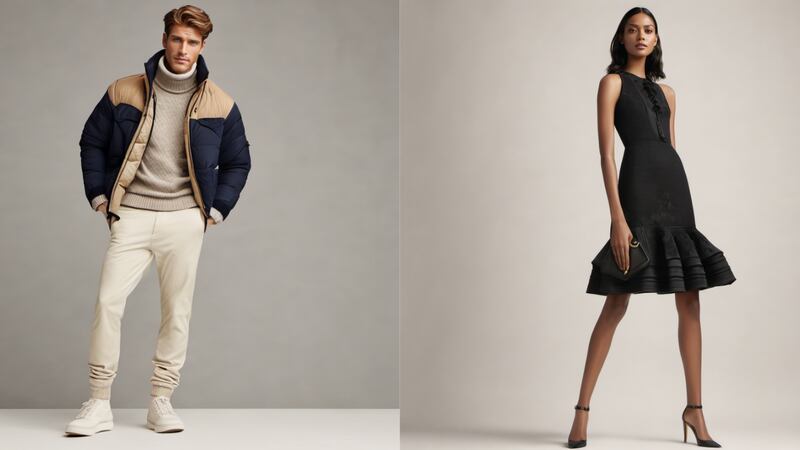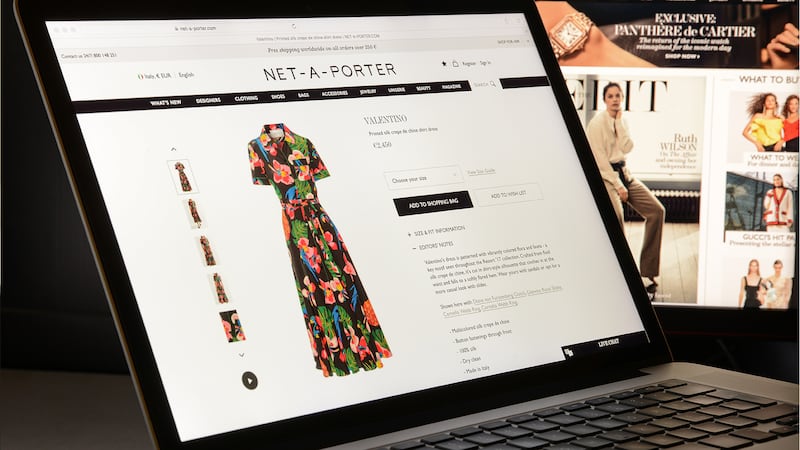With the novelty of generative AI having worn off, many brands and retailers spent 2024 asking themselves the same question: What the heck can we do with this thing?
Some of the earliest experiments with the technology have already fizzled, raising questions about its long-term prospects. On the other hand, others have gone all in on this latest strain of AI, building fashion-design platforms with it, using it to engineer entirely new fragrances and even training it to carry on a designerâs creative legacy. Consumers werenât always enthused, lashing out at brands over concerns like the techâs use of copyrighted material and its environmental impact.
For many brands and retailers, however, the focus this year was on more immediate concerns, as the industry slammed into economic headwinds and shoppers pulled back on high-end spending. Nike shuttered RTFKT, the virtual sneaker brand it acquired at the height of the web3 boom, and luxury e-commerce faced a reckoning with the collapse of high-profile players like Farfetch and Matches. Even so, a number of emerging marketplaces defied the e-commerce slump, proving that success isnât impossible; itâs a matter of execution.
To that end, companies continued looking for ways to better curate and personalise their online assortments for consumers overwhelmed by choice, while continuing to invest in data analytics to better understand their shoppers. The smartest brands were able to put those insights to use to create more meaningful customer connections.
Top Stories
Case Study | How to Turn Data Into Meaningful Customer Connections: Before fashion businesses can put artificial intelligence to work or target the right shoppers online, they need good data and a deep understanding of who their customers are and what they want. This case study offers a guide for brands that want to truly know their customer, allowing them to make smarter decisions that serve shoppers and drive results.

Why Fashionâs Curation Problem Is so Hard to Solve: Online retailers are looking to algorithmic personalisation as a way to carry a vast inventory but still show shoppers products that match their individual tastes. Itâs the same idea that powers Spotify and TikTok, but pulling it off in fashion isnât easy.

Is Generative AI the New Fashion-Tech Bubble?: Arcade lets shoppers design their own jewellery with AI and then produces it. It highlights both the potential in letting users turn their ideas into reality and how much labour is required behind the scenes to make it possible.

Can AI Carry On a Designerâs Legacy?: Norma Kamali is teaching an AI system to replicate her design style â âdownloading my brain,â she calls it â so when the day comes that she steps back from her company, her creative legacy will carry on.

The Race to Build the Best Generative-AI Platform for Fashion Design: A new wave of start-ups is building tools that take the capabilities of the marketâs top generative-AI models and tailor them to fashionâs specific needs. Among them is Raspberry, which just raised $4.5 million in funding from a number of big-name backers.

The Same Tech Behind ChatGPT Is Being Used to Produce Novel Fragrances: Artificial intelligence is being used to create new ingredients and guide perfumers. But some say the technology doesnât pass the smell test.

Fashionâs AI Dilemma Is Getting Worse: Baggu and Collina Strada are the most recent targets of ire among consumers opposed to the use of generative AI designs, and they wonât be the last. What does it mean for an industry that has already embraced the innovation with open arms?

For Luxury E-Commerce, Itâs Even Worse Than It Looks: US consumer spending across online luxury sellers like Farfetch, Matches and Net-a-Porter suffered sustained declines throughout 2023. The question is whether the downturn is simply temporary or the luxury e-commerce model itself is broken.

The Start-Ups Defying the Luxury E-Commerce Slump: Itâs been a tough year for luxury e-commerce â but a crop of smaller marketplaces are beating the odds with a focus on emerging accessible luxury brands and a firmer grip on operating costs.

Nike-Owned Virtual Sneaker Brand RTFKT Is Shutting Down: The virtual sneaker and fashion brand will cease operations at a moment when Nike is reassessing priorities under new CEO Elliott Hill.


